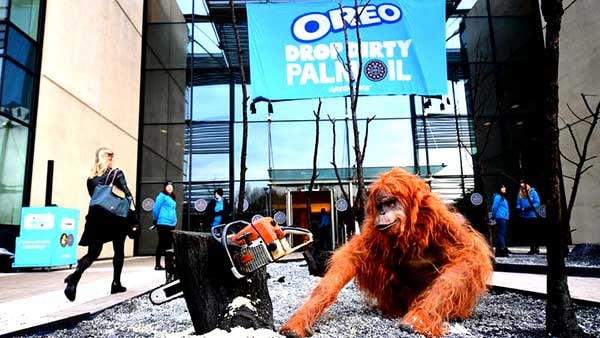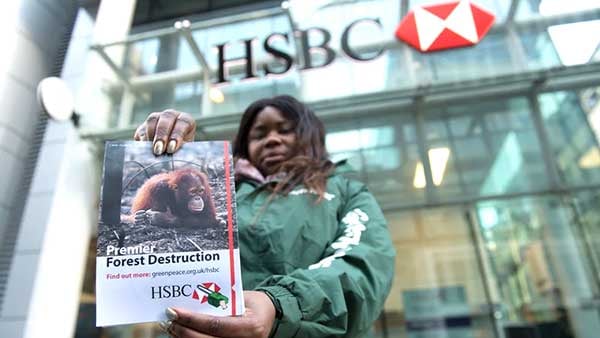Donate to help fight the dirty palm oil industry
Indonesian forests are being destroyed to clear the way for palm oil. If we don't act now, orangutans and many other species could be lost forever.
Together we can stop the dirty palm oil industry. Donate today.
I would like to give:
Your account will be debited today, then every subsequent 4 weeks. Get in touch with us to arrange an alternative date.
Your generous one-time gift helps fund our campaigns for a better and greener future.
In making a donation to Greenpeace Australia Pacific, you will be providing us with your personal information. We may use your information to enable us to process your donation, communicate with you about your donation and inform you about our campaigns. Your information is safe and secure with us – for more information please see our Donor Collection Notice and Privacy Policy.
We are 100% funded by our supporters
We need to act now to stop indigenous peoples from losing their homes, and prevent more irreplaceable orangutan habitat from being burned to the ground. Your ongoing support is the most effective way to contribute by helping us with our long term major campaigns like this one.
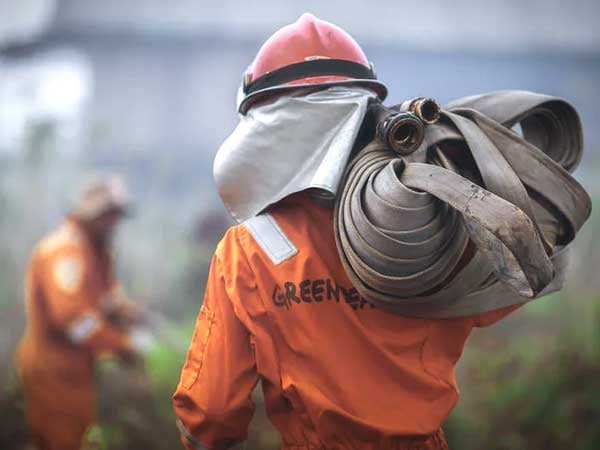
ACT
Training and equipment for our team of volunteer firefighters on the ground in Indonesia.
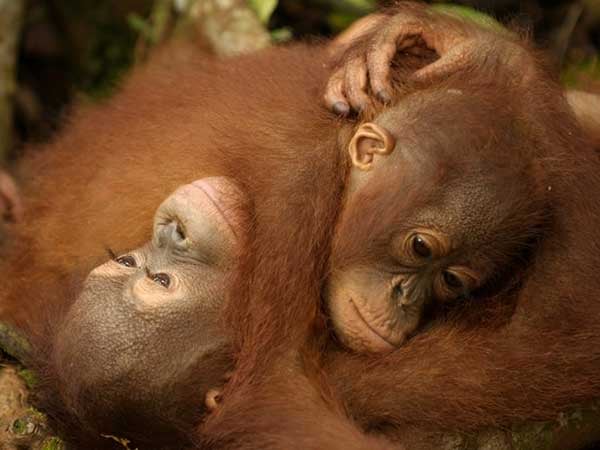
INVESTGIATE
Increase awareness of the threats that orangutans are currently facing.
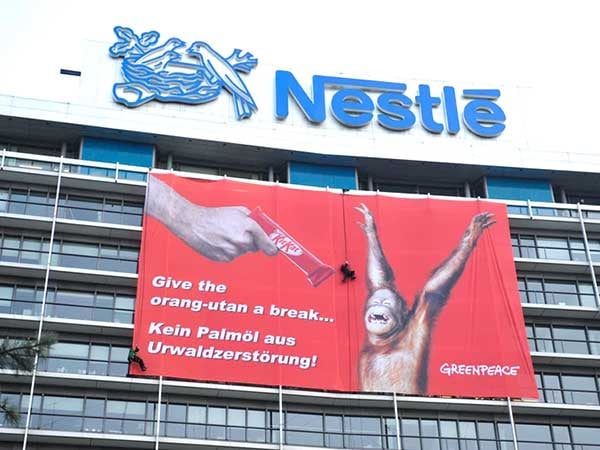
EXPOSE
The destructive industries and companies contributing to deforestation.
What is Greenpeace campaigning for?
Greenpeace works on many fields, helping local communities and firefighters. We also have been campaigning to pressure those global companies to sign commitment to stop using unsustainable palm oil.
What we have achieved so far
2016
Greenpeace activists at the headquarters of Oreo. Greenpeace is calling on Mondelez the makers of Oreo, to stop buying dirty palm oil from Wilmar, the largest dirty palm oil producer.
Success!
Big brands stopped logging
Using the power of public pressure, hundreds of thousands of Greenpeace supporters took action against Mars, Mondelez, Procter & Gamble and Wilmar International. We showed the world who is responsible for rainforest destruction and got the biggest brands on the planet to agree to end deforestation – an incredible result!
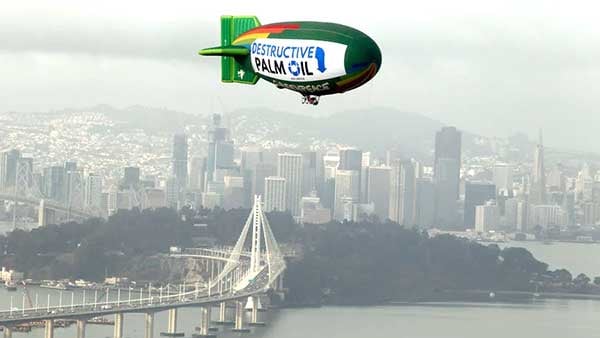
2016
The Greenpeace thermal airship A.E. Bates flies over the San Francisco Bay area near a facility where palm oil trader IOI imports its palm oil in the San Francisco Bay area.
We did it!
Colgate-Palmolive promised to stop sourcing dirty palm oil
Colgate-Palmolive promised to cut business ties with controversial supplier IOI who were caught destroying forests in violation with its commitments to not do so. The pressure we placed on these companies saw Colgate-Palmolive join more than a dozen other companies in terminating business with IOI until it changes its practices!
2017
Leaflet delivery to HSBC staff and customers designed to raise awareness that the bank is funding rainforest destruction in Indonesia. A report "Dirty Bankers - How HSBC is Financing Forest Destruction for Palm Oil" has also been created to shed light on HSBC dirty ties.
Victory!
HSBC committed to stop financing dirty palm oil
HSBC committed to breaking its links to palm oil companies destroying forests! This came about because of the phenomenal pressure placed HSBC. Over 200,000 people around world signed a petition, which was delivered to the head offices in Jakarta and Kuala Lumpur. Tens of thousands wrote emails directly to the CEO, and volunteers campaigned outside high street branches in Australia, France, and the UK.
2018
The crew of the Greenpeace ship MV Esperanza occupied the tanker for 24 hours. The ship, carrying 27,000 metric tonnes of crude palm oil for the Wilmar Company, was held up from departing to its destination Rotterdam, Netherlands.
Success!
Wilmar published a plan to eliminate deforestation from its supply chain
Wilmar International published a detailed action plan to monitor all of its suppliers in hopes to eliminate deforestation from its supply chain! Prompted by an intensive global campaign by Greenpeace over 1.3 million incredible supporters signed the Greenpeace petition calling for an end to deforestation for palm oil, getting us one step closer to changing the rest of the industry for good!
You can help power more victories against dirty palm oil
Indonesian forests are being destroyed to clear the way for palm oil. If we don't act now, orangutans and many other species could be lost forever.

